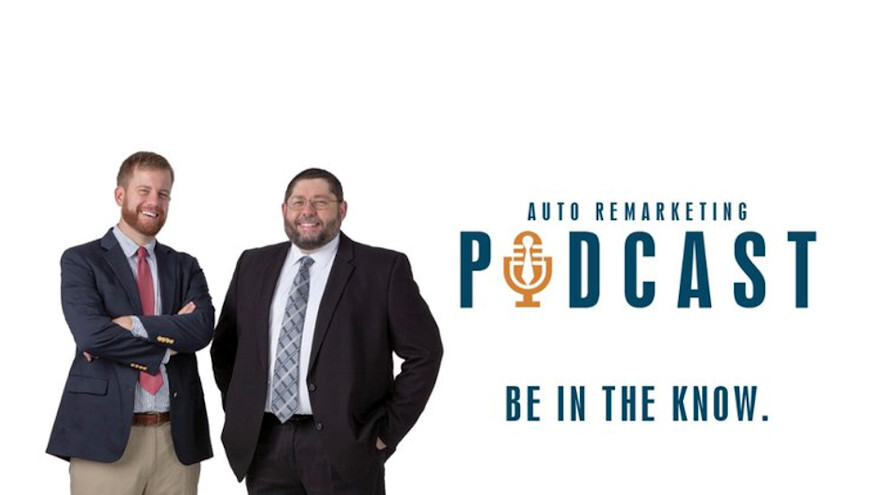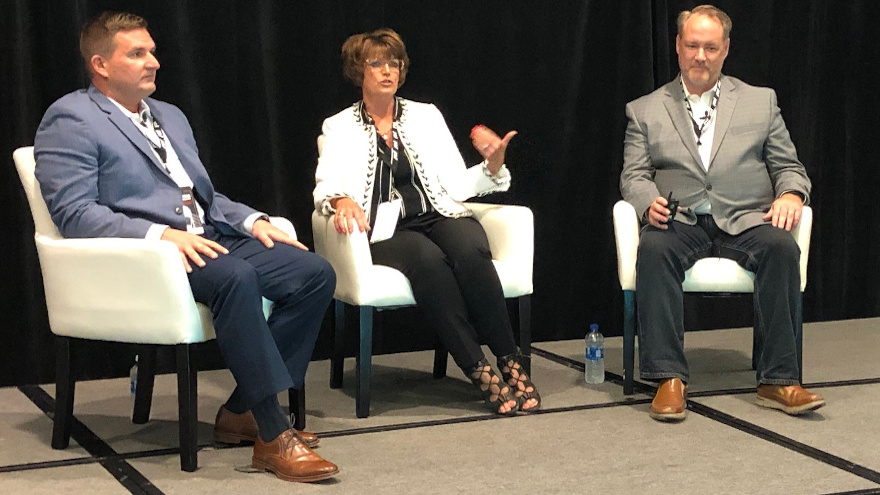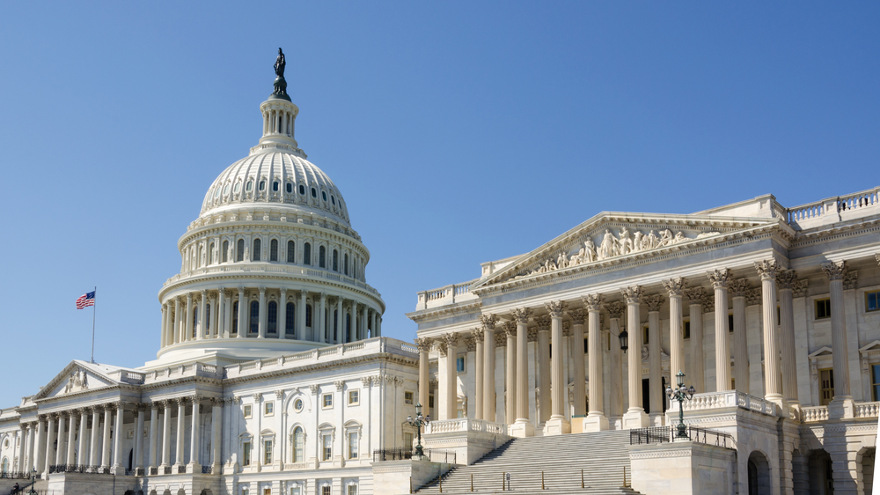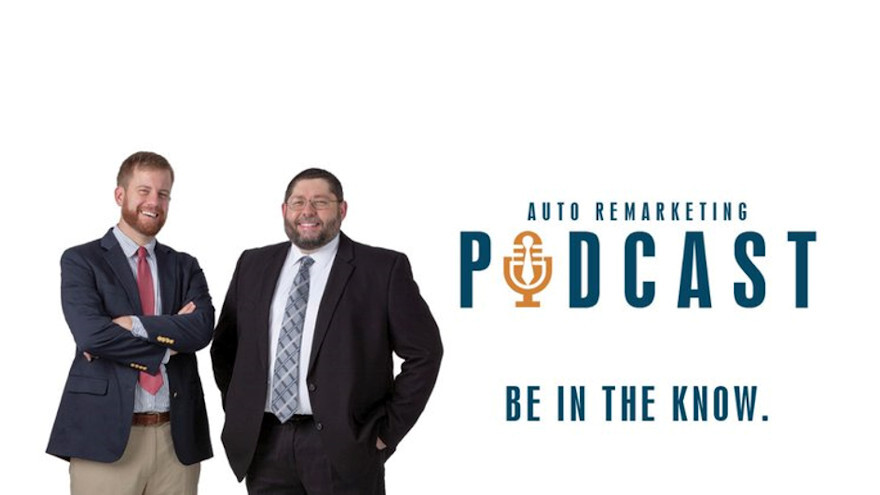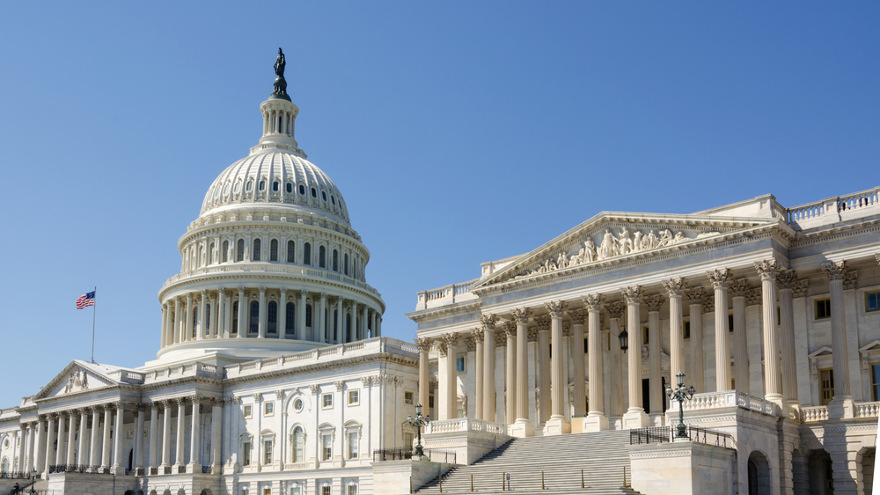Ken Hill, managing director of 700 Credit, acknowledged during this episode of the Auto Remarketing Podcast that he’s a “credit geek.”
While that might sound like a negative moniker, Hill offered his expertise on the impact that dealers are facing because of the enhancement of the Safeguards Rule by the Federal Trade Commission as well as the capabilities that soft credit pulls have to enhance the opportunities for dealerships and finance companies.
To listen to the conversation, click on the link available below, or visit the Auto Remarketing Podcast page.
Download and subscribe to the Auto Remarketing Podcast on iTunes or on Google Play.
There’s another part of the digital world of financial services within automotive that might not get the attention of pre-approvals and the path toward delivery, but not completing it correctly can land finance companies in trouble.
It’s refunding warranties and other F&I products when the vehicle is repossessed or is deemed to be a total loss following a crash or other catastrophic event.
Robert Christini of Dealertrack and Cox Automotive, along with Anne Holtzman and Peter Krall of Allied Solutions, tackled the challenging topic for this episode of the Auto Remarketing Podcast, recorded following their session at this year’s Auto Intel Summit in Raleigh, N.C.
To listen to the conversation, click on the link available below, or visit the Auto Remarketing Podcast page.
Download and subscribe to the Auto Remarketing Podcast on iTunes or on Google Play.
The American Recovery Association (ARA) gained more traction on the compliance front this week.
ARA announced through a news release that Flying A Information Resources has chosen the association’s compliance monitoring system to assist the firm in vetting and monitoring the compliance of its professional recovery agent network, including ARA’s site inspection program.
ARA reiterated that it is dedicated to providing choices to the recovery industry regarding compliance and safety training programs, firm in the belief that recovery professionals have the right to choose the program that best serves their individual company’s needs.
The association said this agreement will provide training program choices for Flying A’s agents among several nationally recognized programs.
“We appreciate ARA’s commitment to the idea of creating a culture of compliance in the recovery industry,” Flying A chief executive officer Richard Landeis said in the news release. “Flying A considers compliance and safety as a key component in our offering to clients, and ARA’s Compliance Monitoring System will both increase our operation’s efficiency and reduce compliance management costs.”
ARA highlighted that its compliance monitoring system begins with ever-evolving and highly detailed educational materials. These cover the complex repossession issues of the present day while blending the past with the present to provide historic guidance into the future of the repossession industry.
A portal also contains all the critical documents, policies and procedures necessary for repossession agents, including study materials for the Certified Collateral Recovery Specialist (CCRS) certificate.
“ARA made the investment to develop an industry leading compliance and safety training program to provide an open trade option for lenders and agency owners considering the best price point for their company,” ARA president Dave Kennedy said.
“I commend and look forward to working with Flying A and other facilitators and lenders who understand that giving the industry an alternative for compliance programming is one of the keys to building a sustainable business model for the collateral recovery industry,” Kennedy went on to say.
The development with Flying A arrives as ARA continues to plan for his year’s North American Repossessors Summit, which is on deck for June 21-22 in Denver.
Early bird registration discounts, a path for finance companies to participate in the annual golf event and more can be found at www.reposummit.com.
The American Financial Services Association highlighted that 11 members of the U.S. House sent a letter to the Consumer Financial Protection Bureau containing seven questions triggered by the regulator saying it is “moving to thwart illegal repossessions in the heated auto market.”
The lawmakers began their letter by referencing a post on Twitter by CFPB director Rohit Chopra, who said, “No one ever wants to wake up to find that their car has been stolen. Given today’s high prices for used cars, the CFPB is taking action to thwart illegal auto repossessions by auto lenders, investors, and servicers.”
The representatives asked Chopra respond to the following questions to determine the level of concern members of Congress should have regarding vehicle repossessions mentioned in part by a previous CFPB bulletin. The questions included:
• In the three years prior to the pandemic (2017, 2018, 2019), how many auto repossessions took place within the United States per each year?
• How many auto repossessions took place during the pandemic, in 2020 and 2021?
• In each year described above, please determine how many instances the CFPB found of an abusive act or practice in auto repossessions.
• In each of the above-mentioned years, how many public enforcement actions resulted from automobile repossessions.
• What historic evidence does the CFPB have that higher automobile costs correlate to illegal repossessions?
• With respect to the enforcement actions cited in the bulletin — does the CFPB have any evidence that the illegal practices cited in these enforcement actions are widespread across the auto lending industry?
• Going forward, does the CFPB commit to resolving limited or circumstantial instances of illegal auto repossessions under your supervision function instead of leading with your enforcement arm?
The lawmakers who signed the letter included:
Rep. Andy Barr
Rep. Warren Davidson
Rep. Lance Gooden
Rep. Bill Huizenga
Rep. David Kustoff
Rep. Blaine Luetkemeyer
Rep. Bill Posey
Rep. Pete Sessions
Rep. William Timmons IV
Rep. Ann Wagner
Rep. Roger Williams
The lawmakers closed their letter to Chopra by writing that his comments were “the latest in a recent trend from your office making disparaging and derogatory statements about legally operating businesses. As the preeminent regulator of consumer financial products, making unfounded and intentionally damaging statements is well beneath the position you hold.
“While you certainly have a responsibility to protect consumers, it is important to note, as you did in a separate blog post, ‘for many, their car or truck is essential to get to work or to do their work.’ Absent the ability to obtain financing, many consumers would be forced to go without,” the lawmakers continued.
“It is important that you stick to the job of protecting consumers and leave behind the practice of denigrating an entire industry and the American citizens and consumers they employ,” the members of Congress added.
AFSA wrapped up its own blog post about the development by writing the association “is encouraged by Congress’ support of an industry that has been working hard for its customers during a challenging time, and we look forward to the CFPB director’s response.”
The busy month for ComplyNet continued this week when the provider of end-to-end compliance and risk mitigation solutions announced the release of ABLE, which is designed to be an intuitive, easy-to-use, and comprehensive compliance management system.
ComplyNet highlighted that ABLE can guide dealerships through compliance protocols in an environment that is both collaborative and creative.
The ABLE platform has various tools and features available, including assessments, trainings, task management, simulated phishing exercises, complaint management, document management, recordkeeping, and reporting.
ComplyNet customer Ricart Automotive praised the capabilities of ABLE through a company news release.
“ComplyNet has enhanced our culture of compliance,” Ricart Automotive president Jared Ricart said. “The ABLE platform is extremely intuitive and easy to use, the training is dialed-in and role specific, the conversion was smooth, and the expert guidance has been outstanding.”
ComplyNet chief executive officer Jeff McCurry elaborated about ABLE’s capabilities.
“For technology to work, it must solve problems intuitively and effortlessly,” said McCurry, who joined the company in this role at the beginning of March. “And ABLE meets those requirements in ways that have enabled ComplyNet to change the delivery of compliance in the automotive industry.”
ComplyNet president and general counsel Adam Crowell added, “while there are common elements to the user-experience, each user’s experience is unique based upon roles and permissions, and the offerings are extremely focused and comprehensive to efficiently guide behaviors that becomes cultural.”
Along with this development, ComplyNet’s activities this month also included the Kentucky Automobile Dealers Association choosing the firm as a preferred partner.
The Consumer Financial Protection Bureau used strong language in a news release Monday upon issuing a compliance bulletin on vehicle repossessions.
The CFPB said it is “moving to thwart illegal repossessions in the heated auto market.” The bureau said it was also prompted to compile the 13-page bulletin because of “conduct observed during CFPB examinations and enforcement actions, including the illegal seizure of cars, sloppy record keeping, unreliable balance statements, and ransom for personal property.”
The bureau used the bulletin to reiterate its enforcement power regarding prohibition on finance companies, forwarders and repossession agents engaging in unfair, deceptive, or abusive acts or practices (collectively UDAAPs) when repossessing vehicles.
The CFPB emphasized that it plans to hold these entities accountable if they commit UDAAPs when repossessing vehicles, including:
• Repossessed vehicles if consumers’ loan account is current, even if there was a prior delinquency.
• Repossessed vehicles if consumers entered an agreement to extend the loan.
• Repossessed vehicles if consumers followed any instructions the company said would result in avoiding repossession.
• Repossessed vehicles from consumers who have filed for bankruptcy, and thus are protected by an automatic stay of collection activity.
• Repossessed vehicles as a result of processing payments in a different order than had been communicated to consumers.
• Repossessed vehicles after unlawful fees pushed the consumer’s account into default.
• Withhold personal property found in repossessed vehicles until consumers pay an upfront fee to recover the property.
• Charged for collateral protection insurance after a vehicle is repossessed.
To prevent these unfair, deceptive, or abusive acts or practices, the CFPB said in the bulletin that entities should consider doing the following:
• Review policies and procedures, including call scripts, to ensure that they provide employees with accurate information about steps consumers can take to prevent repossession.
• Review policies and procedures regarding cancellation of repossession orders to ensure that there is an appropriate process for cancelling repossessions if consumers take steps that should result in cancellation.
• Ensure prompt communications between the servicer and repossession service provider when the servicer cancels a repossession. For example, servicers may call repossession service providers to confirm cancelation or use mobile phone applications that push cancellation updates to repossession service providers’ phones.
• Monitor repossession service providers for compliance with repossession cancellations.
• Incorporate monitoring of wrongful repossession in regular monitoring and audits of communications with consumers.
• Ensure that the entity has a corrective action program to address any violations identified and to reimburse consumers for the direct and indirect costs incurred as a result of unlawful repossessions when appropriate.
• Review payment allocation policies and procedures to validate that they are consistent with the payment allocation order disclosed in contracts and other consumer facing disclosures, such as websites.
• Monitor for illegal fees charged after repossession.
• Review consumer contracts to validate that any fees charged to consumers are authorized under the terms of applicable contracts.
• Review consumer complaints regarding repossession and ensure there is an appropriate channel for receiving, investigating, and properly resolving consumer complaints relating to wrongful repossession and illegal fees after repossession.
• Perform regular reviews of service providers, including repossession vendors, as to their pertinent practices.
• Monitor any force-placed insurance (FPI) program to ensure that consumers are not charged for unnecessary FPI. This may include review of FPI cancellation rates.
In the news release, the CFPB made the assertion that finance companies might leveraging high wholesale prices. Monthly readings from Black Book, Cox Automotive, J.D. Power Valuation Services and KAR Global all have been near or above record levels for several months, according to content generated by Cherokee Media Group.
“The CFPB is concerned that these market conditions might create incentives for risky auto repossession practices, since repossessed automobiles can command higher prices when resold,” the bureau said.
“The timing of auto repossessions often comes as a surprise to borrowers and can cause devastating injury by depriving borrowers of the use of their vehicles,” the bureau continued.
“In addition, many people experience emotional distress when a car is taken from them, lose personal property, miss work or lose their job, incur expenses for alternative transportation, pay repossession-related fees, experience negative credit reporting, and have to repair vehicles damaged during the repossession process,” the CFPB went on to say.
The CFPB pointed out that auto financing now is the third largest consumer credit market in the United States with more than $1.46 trillion in outstanding balances, double the amount from 10 years ago.
“With today’s high car prices, auto lenders and investors might be tempted to seize vehicles for resale in the hot used car market,” CFPB director Rohit Chopra said in the news release. “No American ever wants to wake up to see their car stolen. Auto loan servicers need to ensure that every repossession is lawful.”
American Financial Services Association senior vice president Celia Winslow appeared on this episode of the Auto Remarketing Podcast to discuss what the Consumer Financial Protection Bureau reported when the regulator examined subprime auto financing earlier this year.
Winslow also shared what the association’s dialogue has been like with federal lawmakers and other happenings in Washington, D.C.
To listen to the conversation, click on the link available below, or visit the Auto Remarketing Podcast page.
Download and subscribe to the Auto Remarketing Podcast on iTunes or on Google Play.
What at least one industry expert cautioned about potentially happening — the proliferation of an Illinois regulation connected with the Military Lending Act (MLA) — is gaining federal momentum again on Capitol Hill.
Last week, the American Financial Services Association (AFSA) recapped that Rep. Jesús “Chuy” García, an Illinois Democrat, Rep. Glenn Grothman, a Wisconsin Republican and other House Democrats reintroduced a 36% “all-in” rate cap proposal.
AFSA explained the measure entitled The Veterans and Consumers Fair Credit Act (H.R. 5974) would extend the MLA rate cap to all consumers.
While lawmakers emphasized implications within installment lending, compliance expert Randy Hendrick explained back in May how this type of regulation can impact auto financing, too.
The latest moves at the federal level triggered this statement from Bill Himpler, who is president and chief executive officer at AFSA.
“The Military Lending Act’s 36% rate cap has not only proven to be unworkable based on recent actions brought by the Consumer Financial Protection Bureau, with active military personnel racking up debt with predatory lenders, but also unknowable, because the Department of Defense to date has released no data on the effect of the rate cap on military personnel and their families,” Himpler said.
“Now, in a period of great economic uncertainty, when U.S. consumers may need greater access to credit due to rising prices for everyday staples, including gas to get to work, the House of Representatives may consider creating even greater financial uncertainty with a 36% rate cap for all American consumers. Less access to traditional installment lenders is not the way to help consumers, and the American Financial Services Association will work to ensure policymakers understand the harm that a rate cap could create for both consumers and the broader American economy,” he continued.
García and Grothman first introduced their proposal in 2019. In a news release distributed in November of that year, each lawmaker made their cases for this regulation.
“Predatory loans are trapping families in a cycle of debt. We know that the Military Lending Act has preserved access to credit while protecting consumers from predatory payday lenders. Some states have extended these proven protections to all their residents, but my constituents in Illinois remain vulnerable to payday loans, debt collection, vehicle repossessions, and more. Veterans and consumers deserve the same protections from vicious debt traps that active-duty service members receive, and the Veterans and Consumers Fair Credit Act will do just that,” García said.
“Usury has been condemned since Biblical times,” Grothman said. “Historically, the United States has had usury laws, putting a guard rail up for borrowers. As more and more loans are given online, it becomes more difficult for states to deal with the problem of snowballing debt.
“We already protect military service members under the Military Lending Act, which means that we have recognized the predatory nature of high-interest loans to our men and women in uniform,” Grothman continued. “This raises the question — if it is wrong to allow predatory lenders to target our service members, why is it right to let them target the rest of the community?”
Mayer Brown partners Ori Lev, Brian Stief and Kerri Elizabeth Webb compiled a robust analysis of the Consumer Financial Protection Bureau’s authority to enforce a prohibition against abusive acts and practices in connection with the provision of consumer financial products or services.
During the past decade, the Mayer Brown experts pointed out that this new authority raised a host of questions about what conduct was abusive and how the CFPB would use this new tool. Lev, Stief and Webb conducted an analysis recently after Mayer Brown generated a similar one five years ago.
“Some patterns from the early years still hold true — abusiveness is more likely to be alleged in contested litigation than in settled enforcement matters; most abusiveness claims are either paired with, or could be paired with, unfairness or deception claims; and the agency relies on certain kinds of abusiveness claims more than others,” Lev, Stief and Webb wrote in a resulting white paper.
“Yet other patterns changed over the past five years — the CFPB substantially increased its reliance on claims that companies ‘materially interfered’ with consumers’ understanding, and the CFPB relied on abusiveness in a rulemaking for the first time,” they continued. “The big question from 10 years ago — what conduct is abusive that was not already proscribed by the prohibitions on unfair or deceptive conduct — remains largely unanswered.
Now with new CFPB director Rohit Chopra and six other key staffers firmly in place, the Mayer Brown trio added that companies subject to CFPB jurisdiction should carefully follow developments in this space to help ensure they understand the agency’s current thinking about this unique tool.
“From a compliance standpoint, the takeaway is that robust compliance systems to prevent and detect potentially unfair and deceptive acts and practices should be well positioned to prevent allegations of abusiveness,” Lev, Stief and Webb wrote.
“That said, understanding how the CFPB thinks about the various elements of abusiveness claims — such as the prohibitions on ‘materially interfering’ with consumer understanding and ‘taking unreasonable advantage’ of certain circumstances — can help companies avoid not just abusiveness claims but also claims of unfair or deceptive conduct,” they went on to state.
The entire Mayer Brown white paper can be downloaded via this website.
In August, the Consumer Financial Protection Bureau announced that two final rules issued under the Fair Debt Collection Practices Act (FDCPA) will take effect as planned on Nov. 30.
Coinciding with new research showing how consumers often fail to respond to unidentified callers, the CFPB recently rolled out a series of questions and answers pertaining to compliance with its new debt collection rules.
The bureau’s latest guidance covers topics such as a limited content message, Zortman voicemails and phone-call frequency.
The CFPB’s information can be found via this website.
Meanwhile on Wednesday, First Orion, a provider of digital call experiences for mobile carriers, enterprises and mobile apps, released findings from its 2021 Brand Impact Report.
The report surveyed U.S. mobile subscribers to better understand their experiences with unidentified callers and their preferences with how brands communicate with them.
Findings show that 93% of survey respondents have received a scam call to their mobile phone, 90% say they don’t feel comfortable answering their phone when the caller is someone they don’t recognize, and 78% have missed an important call for this reason in the past month.
For companies that rely on making phone calls — like financial services companies calling to verify transactions or assist in applications and collections — First Orion said that getting the right person on the phone at the right time can make all the difference in providing a great customer experience.
However, First Orion added that the rise in scam calls have cost over 59 million Americans nearly $30 billion dollars in 2021 alone; as a result, consumers are apprehensive about answering unidentified callers.
The Brand Impact Report indicated consumers want call transparency from the brands and marketers calling them to make an informed decision on whether they wish to engage with the call.
When a business can effectively reach customers by phone, First Orion explained that it can lead to a better customer experience, higher call answer and conversion rates, and increased revenue.
When a business is unable to reach customers by phone — appearing as a missed, unidentified caller — 61% of respondents indicated that it could create a negative perception of the business, according to the report.
Additional findings from the Brand Impact Report showed that brands who identify themselves dramatically improve the chances of their phone call being answered and improve consumer trust.
And consider these other trends from the report:
• 85% of mobile subscribers surveyed consider brands who call with unidentified numbers as “illegitimate”
• 90% indicate that if brands would properly identify themselves while their phone was ringing, they would feel comfortable answering their phone again
• 84% would feel more valued if brands utilized call enhancement solutions like branded calling
“The phone call has become a pivotal tool in brand marketing and customer experience but with the rise of spam/scam calling, companies now have a responsibility to protect consumers during this essential touchpoint,” First Orion chief information and chief product officer Scott Hambuchen said in a news release.
“Brands who aren’t utilizing branded calling solutions are putting both their customers and their reputation at risk, and they are missing their chance to establish a trusted, human connection — one that their customers unquestionably want,” Hambuchen went on to say.

